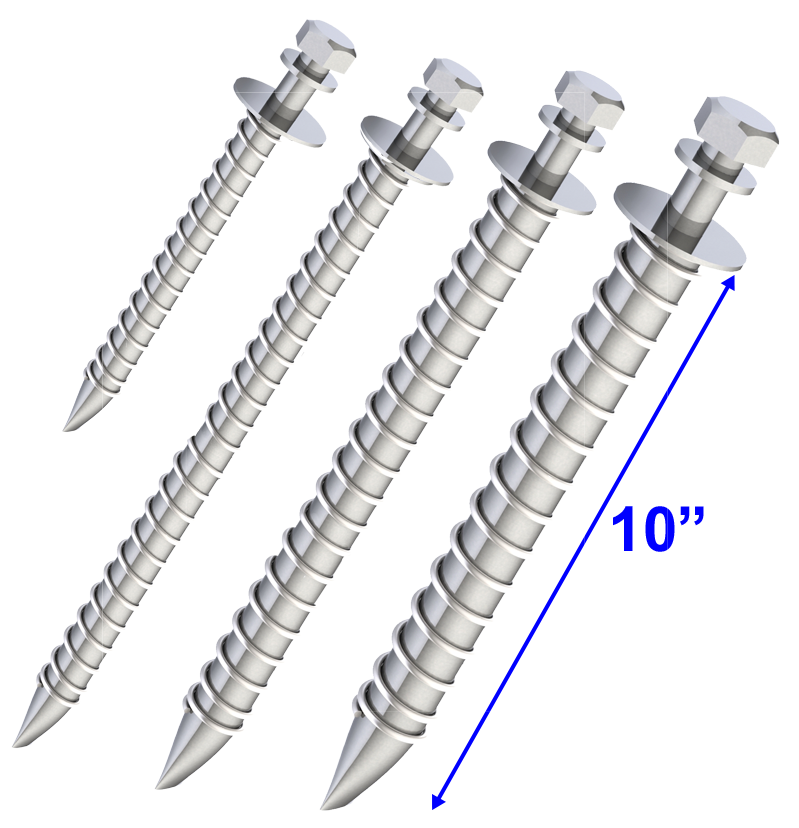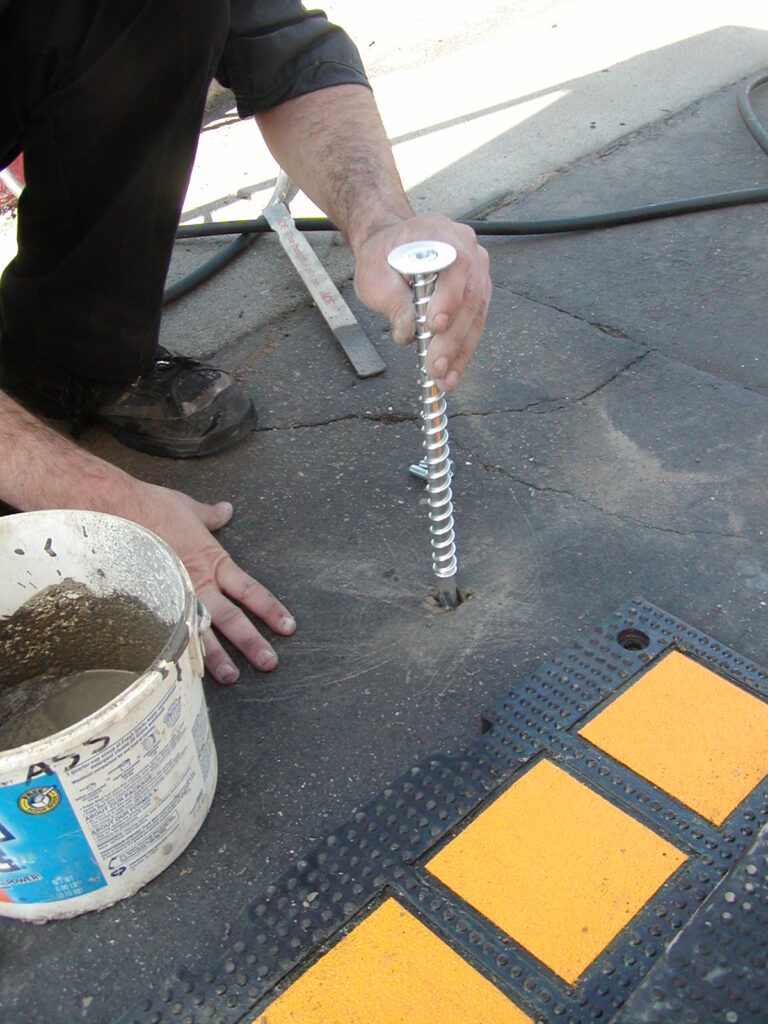TS: Asphalt Anchors? There definitely is a need for them and it’s kind of funny that there haven’t already been products to deal with anchoring in asphalt. How did you get involved with anchoring in asphalt? There must be a story here.
Dori: In 2004 my company Designated Parking developed a self-powered parking barrier. When it came time to field test, we discovered that most of the applications would require installation of the barriers on asphalt. As we were not able to find reliable anchors for asphalt, we developed our own. Within 5 years sales of the anchors exceeded sales of the barriers.
TS: Where are people using your products?
Dori: There have been hundreds of applications, and we learn of new ones every week. The most popular are for mounting bike racks, outdoor furniture, sheds, tents, carports, sign posts, fences, ramps, speed bumps and bollards. The highest volume applications are for flood control, road delineators and to arrest airplanes from overrunning landing runways.
TS: Your product makes a lot of sense for certain applications. What are the limitations for the product? Where should you not use these anchors?
Dori: The limitations of anchoring to asphalt is the asphalt’s tendency to yield to long term stress. Our anchors are great for resisting relatively short bursts of forces, such as wind, impact and mild collisions. We discourage use of the anchors for any structure that is inherently unstable and thus applies a continuous pull on the anchors. In the case of tents, we recommend de-rating the anchors to 20% of their pull resistance when anchoring straps that are supporting the structure from collapse.
TS: What is your biggest challenge in getting people familiar with this product?
Dori: We find 2 obstacles to wide acceptance:
(A) Most people do not know that there is a valid and economical solution to anchoring directly in asphalt. Most architects, engineers and contractors are taught that the only reliable solution is to replace patches of asphalt with concrete.
(B) Many contractors use expansion anchors in asphalt. These anchors, that are so effective in concrete, are guaranteed to fail within hours or days in asphalt, because asphalt flows under pressure. That give “Anchoring in Asphalt” a bad name.
TS: Tell me more about your background. What else have you been involved with before your venture into asphalt anchoring?
Dori: I am an electrical engineer by education and training. I started 4 ventures before Asphalt Anchors. All were essentially electronic in nature, such as DPC mentioned earlier (parking barriers). Others were supplying General Motors with car burglar alarms, and a manufacturer of advanced hotel guest room controls (now a Honeywell group).
TS: Do you have any new products coming?
Dori: We recently introduced a powerful anchor that is rated for 5,000lbs. pull in 3” asphalt. That is approaching the capabilities of some concrete anchors in concrete. We are expanding our product offering to be a one-stop supplier for related products, such as low-temperature epoxy adhesive to bind our anchors to asphalt.
TS: Has Covid hurt your business at all?
Dori: To the extent that some customers shut down permanently or temporarily, we found a new source of revenue from the Covid-related demand for tents and sheds for medical testing and restaurants. All told we feel fortunate to have our business actually grow in 2020.
TS: Is there anything else you would you like to share with our readers about your product?
Dori: How do we get the trade organizations, trade schools and engineering schools informed about anchoring in asphalt? How do we get specified into projects? If your readers can help me with that it would be a big help.



For more information on Asphalt Anchor products visit https://www.asphaltanchors.com/

TS, another great interview. Mr. Teich is definitely a credit to our industry. There are far too few practical innovations occuring, in recent times.
Great stuff. Love the innovative inclination to invent a fastener for internal need. That’s how most were invented before the age of licensing made invention its own profit center.
Taking a shot for Dori regarding marketing, the best marketing strategy for any new product is to donate the product and the expertise for its use to a public setting. Hospitals are working triage in parking lots at the moment. Think those anchors would be helpful? Show the hospital administrators how helpful. Get some accolades from them for your trouble. Advertise the effort. Call a local paper and get them to do the story. That’s the best advertising.